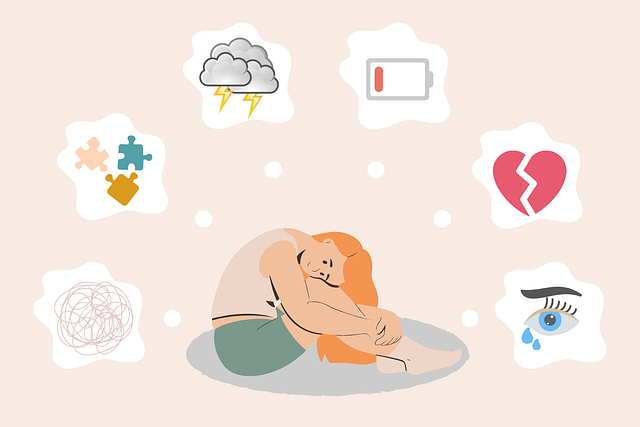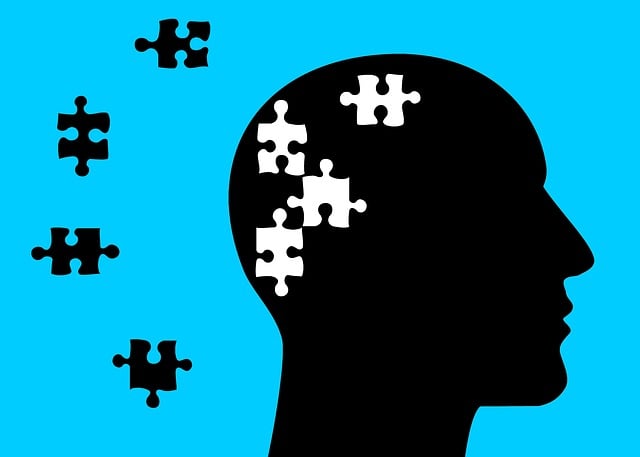Facilitators using Parker Psychosis Therapy principles create safe, supportive group environments for individuals with psychotic disorders, leveraging cultural competency and structured frameworks. Through active listening, structured discussions, and open communication norms, facilitators guide members in challenging negative thoughts, adopting coping strategies, and developing self-care routines. This inclusive approach enhances therapeutic benefits, fosters community, and empowers long-term mental wellness through evidence-based practices like mental health education programs, journaling exercises, and mindfulness meditation. Anonymized feedback mechanisms and measurement tools help track progress, enabling facilitators to adapt strategies for collective healing.
Mental wellness group facilitation is a powerful tool for fostering recovery and community. This comprehensive guide explores effective techniques, with a particular focus on Parker Psychosis Therapy, offering a step-by-step approach to navigating complex group dynamics. We delve into strategies for creating safe spaces, enhancing communication, and measuring progress, ensuring facilitators can guide members towards positive outcomes. By understanding the dynamics at play, facilitators can harness the therapeutic power of peer support, much like Parker Psychosis Therapy models, to revolutionize mental health care.
- Understanding Mental Wellness Group Dynamics
- Parker Psychosis Therapy: A Facilitator's Guide
- Building a Safe and Supportive Environment
- Effective Communication Strategies for Facilitators
- Measuring and Promoting Positive Outcomes in Group Settings
Understanding Mental Wellness Group Dynamics

Understanding Mental Wellness Group Dynamics is a cornerstone of effective facilitation, particularly when employing Parker Psychosis Therapy principles. In these settings, facilitators must navigate complex interpersonal relationships and emotional landscapes to foster a safe and supportive environment. Each group member brings their own unique experiences, challenges, and coping mechanisms, creating a diverse tapestry of mental health journeys. Recognizing these dynamics is crucial for tailoring interactions that encourage open communication, build trust, and promote peer support.
Facilitators play a vital role in guiding the group through activities that enhance self-awareness, develop social skills, and integrate effective self-care practices. By skillfully designing sessions around Mental Health Education Programs, facilitators can help members challenge negative thought patterns, learn coping strategies, and navigate triggers together. This collaborative approach not only benefits individual participants but also creates a collective sense of empowerment, reflecting the interwoven nature of mental wellness support within these group settings.
Parker Psychosis Therapy: A Facilitator's Guide

Parker Psychosis Therapy offers a structured framework for facilitators aiming to support individuals navigating psychotic disorders. This therapeutic approach emphasizes building coping skills and fostering resilience through group interactions. By creating a safe, supportive environment, facilitators can guide participants in understanding their experiences, challenging distorted thoughts, and developing effective self-care routines for better mental health.
The technique prioritizes cultural competency among healthcare providers, encouraging them to adapt the therapy to diverse backgrounds and beliefs. This inclusive approach ensures that everyone feels seen and heard, promoting active engagement and positive outcomes. Incorporating Parker Psychosis Therapy in group facilitation not only equips individuals with valuable coping skills but also fosters a sense of community, which is vital for long-term mental wellness.
Building a Safe and Supportive Environment

Creating a safe and supportive environment is a cornerstone of effective group facilitation, especially when addressing sensitive topics like mental wellness. This involves fostering an atmosphere where participants feel comfortable expressing their thoughts and emotions without fear of judgment or repercussions. Techniques such as active listening, empathetic feedback, and structured discussions help to build trust and encourage open communication. Group norms that emphasize respect, confidentiality, and non-interruption create a sanctuary for vulnerable individuals to share their experiences.
In the context of Parker Psychosis Therapy, this safety net is crucial for facilitating meaningful conversations around psychotic disorders and related challenges. By incorporating conflict resolution techniques and promoting mental health education programs design centered on self-care practices, facilitators enable members to navigate their shared struggles with empathy and understanding. This supportive environment not only enhances the therapeutic benefits of group sessions but also empowers participants to advocate for their mental wellness in all aspects of life.
Effective Communication Strategies for Facilitators

Effective communication is a cornerstone of successful group facilitation, especially within the context of mental wellness support. Facilitators play a vital role in guiding conversations, ensuring every participant feels heard and valued. One proven strategy inspired by Parker Psychosis Therapy emphasizes active listening, where facilitators focus on understanding individuals’ unique perspectives and experiences without judgment. This approach fosters trust and encourages open dialogue.
Additionally, incorporating mental wellness journaling exercises and mindfulness meditation sessions can enhance communication dynamics. By providing structured yet flexible guidance, these practices allow participants to express their thoughts and emotions while learning techniques for emotional regulation. Such activities also promote self-awareness, enabling individuals to contribute more meaningfully to group discussions, ultimately enriching the overall therapeutic experience and reflecting current mental health policy analysis and advocacy trends.
Measuring and Promoting Positive Outcomes in Group Settings

In group settings, facilitating positive mental wellness outcomes involves employing robust measurement tools to track progress and satisfaction. One effective approach is adapting techniques from Parker Psychosis Therapy, which emphasizes evidence-based practices tailored for collective healing. By regularly assessing participants’ experiences through anonymized feedback mechanisms, facilitators can identify areas of improvement and adapt their strategies accordingly. This iterative process fosters a safe and supportive environment, encouraging open dialogue and enhanced self-awareness.
Promoting positive outcomes further involves integrating complementary practices such as Mental Wellness Coaching Programs Development, Mindfulness Meditation, and Mental Wellness Journaling Exercises. These techniques empower individuals to take active control of their mental health by cultivating present-moment awareness, processing emotions effectively, and cultivating a practice of reflection. Guidance in these areas not only complements group discussions but also equips participants with valuable tools to sustain their wellness journey long after the sessions conclude.
Mental wellness group facilitation is a powerful tool for fostering recovery and connection. By understanding dynamic group interactions, implementing evidence-based techniques like Parker Psychosis Therapy, and creating safe spaces, facilitators can significantly enhance participant experiences. Effective communication and ongoing assessment are key to measuring positive outcomes and ensuring these groups remain transformative environments. Embracing these strategies empowers professionals to guide individuals towards improved mental wellness.














